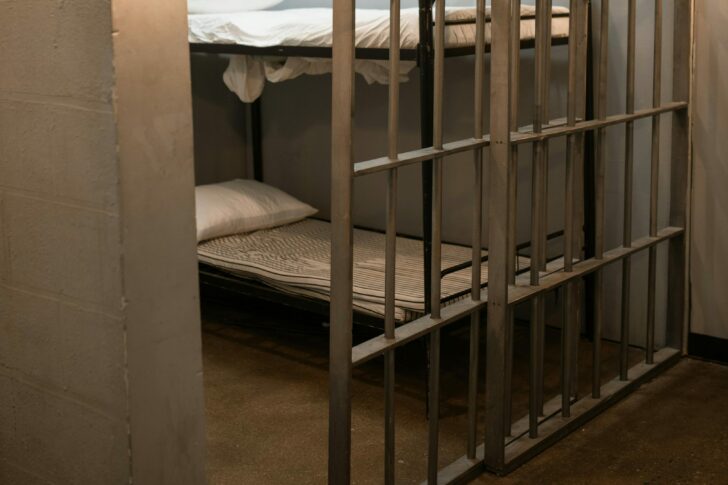What defines a white collar criminal, and how does their conduct impact our society and economy? To answer these pressing questions, our article charts the territories of high-stakes financial deceptions, exploring the psyche behind these lawbreakers, the intricate web of their crimes, and the key measures in place to curb their detrimental impact. Without indulging in conjecture, we offer a grounded analysis that informs, alerts, and guides through the sophisticated landscape of white collar crime.
Table of Contents
Key Takeaways
White collar criminals are typically educated, employed, often hold positions of trust, and engage in planned financial crimes such as embezzlement and insider trading, motivated by financial gain and pressure.
White collar crimes include a wide range of illegal activities, from traditional embezzlement and corporate fraud to modern cybercrime and identity theft, with significant implications on the financial system and investor trust.
Law enforcement and regulatory agencies like the FBI and SEC work collaboratively to investigate, prevent and penalize white collar crimes, but challenges such as sentencing disparities and recovery of assets persist.
The Profile of a White Collar Criminal

White collar crime is a silent battlefield where the combatants are business and government professionals. These perpetrators, often motivated by the tantalizing prospects of financial gain, engage in nonviolent yet insidious offenses involving deception, breach of trust, or concealment. Unlike the impulsive nature of blue-collar crime, these financial crimes require meticulous planning, organizational skills, and often, a network of collaborators.
The white collar criminal is not a lone wolf but a calculated strategist, exploiting organizations and committing crimes with a chillingly clear pattern over extended periods.
Motivations Behind Their Actions
At the heart of such criminal activity is the allure of wealth. For some, the desire for a luxurious lifestyle they deem within their grasp becomes an irresistible siren call, leading to behavior like embezzlement. The access to large funds or sensitive information inherent in their positions creates a dangerous temptation, one that’s often rationalized away by a belief that their actions are victimless or that they’re entitled to the spoils of their illegal activities.
But the motivations are not always so straightforward; the complexities of the financial system can obscure illegal activities, and financial pressures from shareholders or personal debt can push even the most law-abiding individuals over the edge.
Common Traits and Backgrounds
Who are these white collar criminals? They are often the ones you’d least expect: employed, educated, and homeowners. They are the people who have climbed the societal ladder, only to exploit the rungs beneath them. With minimal prior criminal history, they don’t fit the typical profile of a criminal, and yet, the majority are white males who have found their niche in exploiting the system.
Unraveling White Collar Crime Types
White collar crimes are a hydra-headed monster, with various forms including:
Financial malfeasance
Embezzlement
Insider trading
Price-fixing cartels
Misappropriated funds to support lavish lifestyles
These crimes are not limited to individual gain; corporate schemes can involve complex operations that benefit an entire corporation.
And with the advent of technology, new avenues of crime have emerged, such as identity theft and hacking, adding depth to the already murky waters of these illicit activities.
Corporate Fraud and Insider Trading
Corporate fraud is a beast that wears many faces: misrepresenting financial reports, insider trading, and fraudulent loans are just the tip of the iceberg. History has given us infamous examples like the Enron scandal, where corporate executives manipulated financial information for personal gain, sending shockwaves across the entire financial world.
Such fraudulent activities, including mortgage fraud, not only betray the trust of investors but also undermine the very foundations of our financial systems.
Identity Theft and Cybercrime
The digital age has given rise to a new breed of white collar crime, where cybercriminals lurk behind screens. Cybercrime includes a spectrum of activities, from phishing for personal information to elaborate online fraud schemes. In the United States alone, the estimated losses from identity theft approached a staggering $2 billion in 2019, illustrating the profound financial impact of these crimes.
To combat this, investing in cybersecurity measures is no longer optional but a necessity for protecting against such threats.
The Legal Landscape: Law Enforcement and Regulations
The battle against white collar crime is fought with an arsenal of sophisticated data analysis and the wisdom of whistleblowers. It’s a collaborative effort between law enforcement and regulatory agencies, each bringing their unique expertise to the table. Regulatory agencies like the Securities and Exchange Commission play a crucial role in enforcing laws and conducting investigations to prevent and punish white collar criminal activities.
The litigation surrounding corporate crime typically unfolds in civil courts, where the SEC wields jurisdiction over statutory violations in financial markets.
The Role of the Federal Bureau of Investigation
The Federal Bureau of Investigation (FBI) stands as a sentinel in the fight against white collar crime. Tasked with solving complex investigations that may intertwine with organized crime, the FBI’s reach extends from regional to international arenas. The agency zeroes in on corporate fraud, targeting falsified financial information and the illegal dealings of corporate executives.
But the FBI’s vigilance doesn’t stop there; it also tackles health care fraud and combats money laundering, all the while forging alliances with other law enforcement agencies and private sector partners to safeguard our economic landscape.
Regulatory Agencies at Work
In this intricate web of enforcement, numerous federal and state agencies, including the Internal Revenue Service and SEC, work tirelessly to uphold the laws against white collar crime. They hold high-ranking corporate officers accountable for their company’s misdeeds, regardless of their direct involvement, through the Responsible Corporate Officer doctrine.
Collaboration is key, as the FBI teams up with entities like the Securities and Exchange Commission and the Commodity Futures Trading Commission to fortify defenses and ensure the integrity of our financial and corporate sectors.
Consequences for the White Collar Criminal

The consequences for white collar criminals are as varied as the crimes they commit. Those found guilty may face:
Prison time
Probation
Hefty monetary fines
Seizure of personal and family assets to fulfill restitution orders
These consequences are all in the name of justice, ensuring that victims are compensated and prosecution costs are covered.
But the ramifications don’t end with the criminal justice system; civil actions can impose further financial liabilities, turning the full weight of the law against the offenders.
Penalties and Sentencing Disparities
The scales of justice can tip in unexpected ways when it comes to sentencing for white collar crime. Research suggests that white-collar offenders may receive lighter sentences than their blue-collar counterparts, raising questions about the equity of our criminal justice system.
The severity of the crime, the amount of money involved, and the harm to victims all play a role in determining the length of a sentence. This discrepancy fuels ongoing debate and calls for harsher penalties to serve as a stronger deterrent to would-be white collar criminals.
Recovering Ill-Gotten Gains
Asset forfeiture is a key strategy in reclaiming the ill-gotten gains of white collar criminals. By seizing assets obtained through criminal means, law enforcement disrupts the financial foundations of criminal enterprises and deters future illegal behavior.
The effects of financial crimes like embezzlement and fraud are far-reaching, contributing to social inequality and the loss of life savings, which asset forfeiture helps to mitigate.
Preventative Measures Against White Collar Crime
Understanding white collar crime is only the first step; establishing robust defenses is crucial for businesses to maintain their integrity and protect against these insidious threats. Some key strategies for defending against white collar crime include:
Implementing stringent corporate governance practices
Conducting thorough background checks on employees
Providing training on ethics and regulatory compliance to employees
By implementing these measures, businesses can inform and empower their employees to uphold the highest standards of conduct and prevent white collar crime.
A culture that allows whistleblowing without fear of retaliation is essential in detecting and deterring white collar crime.
Corporate Governance and Compliance Programs
Corporate governance and compliance programs are the cornerstones of an ethical business. Enforcing a code of conduct and upholding accountability are pivotal in fortifying a company’s defenses against white collar crime. Internal controls, transparent financial reporting, and routine audits are the safeguards that detect and prevent fraudulent activities, ensuring that financial integrity is preserved and regulations are met.
Due diligence with vendors and suppliers ensures that the company’s ethical standards extend beyond its walls.
Educating Employees and the Public
Knowledge is power, and in the realm of white collar crime, it is the shield that guards both individuals and organizations from falling prey to fraudsters. Regulatory bodies like the CFTC are instrumental in educating the public about the commodities and futures trading, helping investors to:
Spot and prevent fraud
Understand their rights and responsibilities
Make informed investment decisions
Stay updated on market trends and regulations
By staying informed and educated, investors can protect themselves and their investments from potential fraud and misconduct.
Access to resources that verify the standing of financial professionals is invaluable in fraud prevention, and corporate policies that encourage the reporting of white collar criminal activities empower employees to take an active role in crime prevention within their organizations.
The Impact of White Collar Crime on Society
The impact of white collar crime extends far beyond the boardroom; it carries significant financial losses and wider economic repercussions, such as increased costs for consumers, job losses, and compromised market competition. Allegations of white collar crime can tarnish reputations and diminish trust in businesses and institutions, casting a long shadow over an individual’s career and the entities they represent.
The erosion of public trust and the integrity of economic systems hinder economic growth and reflect the profound societal cost of these crimes.
Effects on Financial Markets and Investor Confidence
When the financial markets are shaken by white collar crime, the shockwaves are felt far and wide. Securities fraud and insider trading can lead to market-wide uncertainty and economic losses, shaking the foundations of investor confidence. The revelation of corporate fraud disrupts more than just the offending company; it can disturb entire financial markets, eroding the essential trust that underpins our financial systems.
As trust wanes, so does investor confidence, leading to emotional distress and a pervasive sense of skepticism.
The Social Cost of White Collar Crimes
The social cost of white collar crimes is a tapestry of loss and betrayal. With an estimated 100,000 fatalities annually due to crimes such as hazardous products and environmental pollution, the human toll is staggering. Economically, the losses exceed $700 billion each year, with fraud leading to increased insurance premiums and billions drained from the insurance sector.
Money laundering, a facet of white collar crime, undermines financial systems and threatens economic stability. The victims of these crimes suffer not only financial loss but also emotional distress, while companies grapple with reputational damage and the potential for job losses.
Learn more, visit How does White Collar Crime Affect Society – Law Offices of Mace J. Yampolsky
Summary
As we’ve journeyed through the shadowy world of white collar crime, we’ve uncovered the profiles of the criminals, the complexity of their schemes, and the far-reaching consequences of their actions. We’ve seen how the legal system pursues justice and how businesses can safeguard against these threats. The impact of white collar crime is profound, not only on financial markets and investor confidence but also on the very fabric of society.
Let this exploration serve as a reminder of the vigilance required to protect our economic systems and the collective responsibility we share in fostering a culture of integrity and transparency. May it inspire a commitment to justice and a dedication to preventing the insidious reach of white collar crime.
Frequently Asked Questions
What drives someone to commit white collar crime?
White collar criminals are often driven by financial gain, whether it’s the pursuit of a lavish lifestyle, the pressures of meeting shareholder expectations, or personal financial stress. The complexity of the financial system can also provide opportunities for these crimes to go undetected.
Are white collar crimes usually committed by individuals or groups?
White collar crimes can be committed by both individuals and groups, with some involving collaborative efforts and organizational skills. The complexity of these crimes may require the involvement of multiple participants within a business or government setting.
How are white collar crimes detected and investigated?
White collar crimes are detected and investigated through data analysis, whistleblower information, and the collaborative efforts of law enforcement and regulatory agencies like the FBI and SEC, which use advanced investigative techniques to uncover illegal activities. These agencies work together to dissect complex financial transactions and uncover criminal activities.
What are some examples of preventative measures against white collar crime?
To prevent white collar crime, it’s important for companies to establish stringent corporate governance, conduct thorough background checks, provide employee training on ethics and compliance, foster an environment where unethical behavior can be safely reported, ensure transparent financial reporting, and utilize advanced fraud detection technologies. These measures can help deter white collar crime and strengthen the company’s ethical standards.
What is the societal impact of white collar crime?
White collar crime has a significant societal impact, leading to financial losses, increased costs for consumers, job losses, compromised market competition, damaged public trust, and potential contributions to social inequality.









